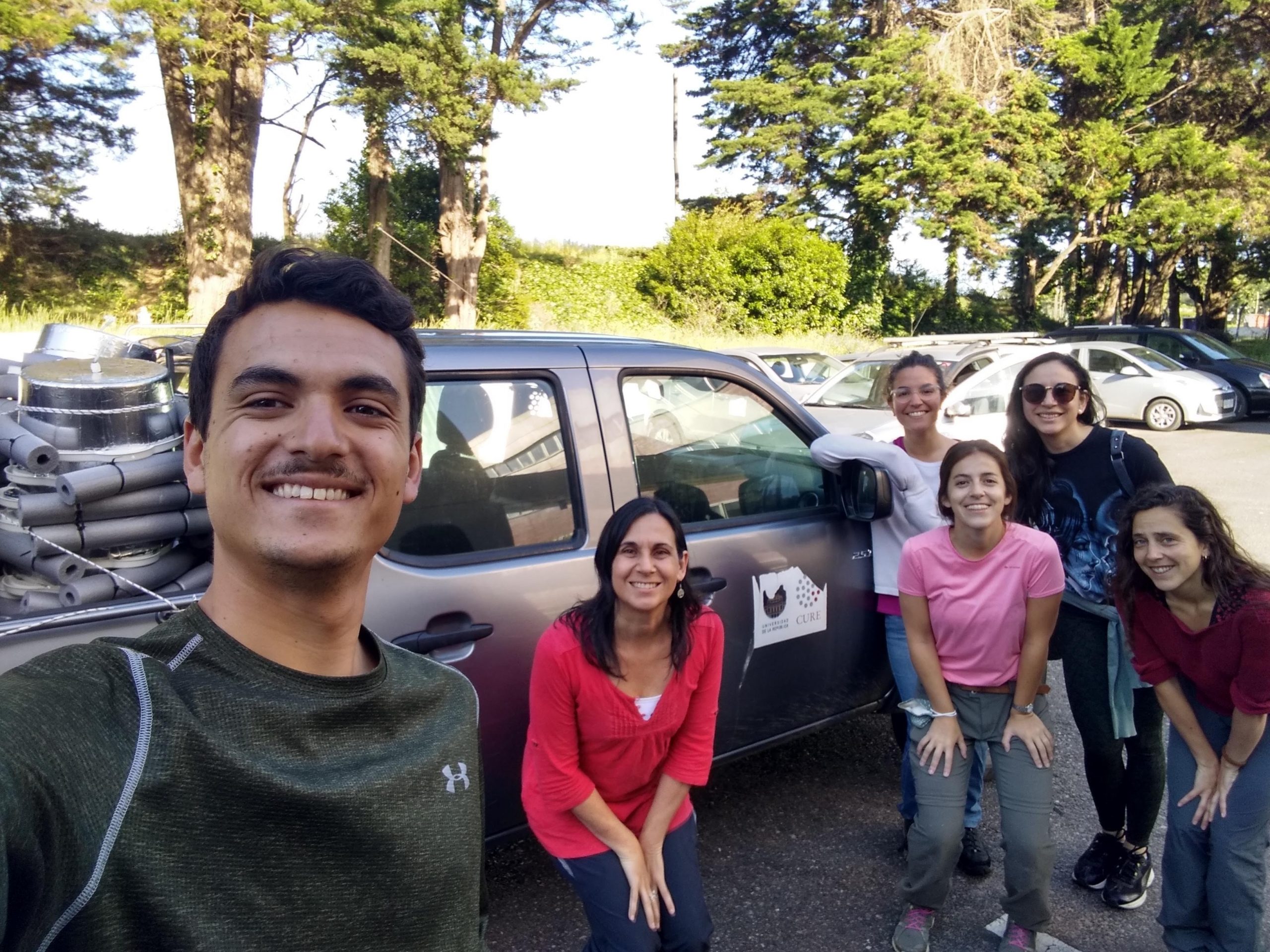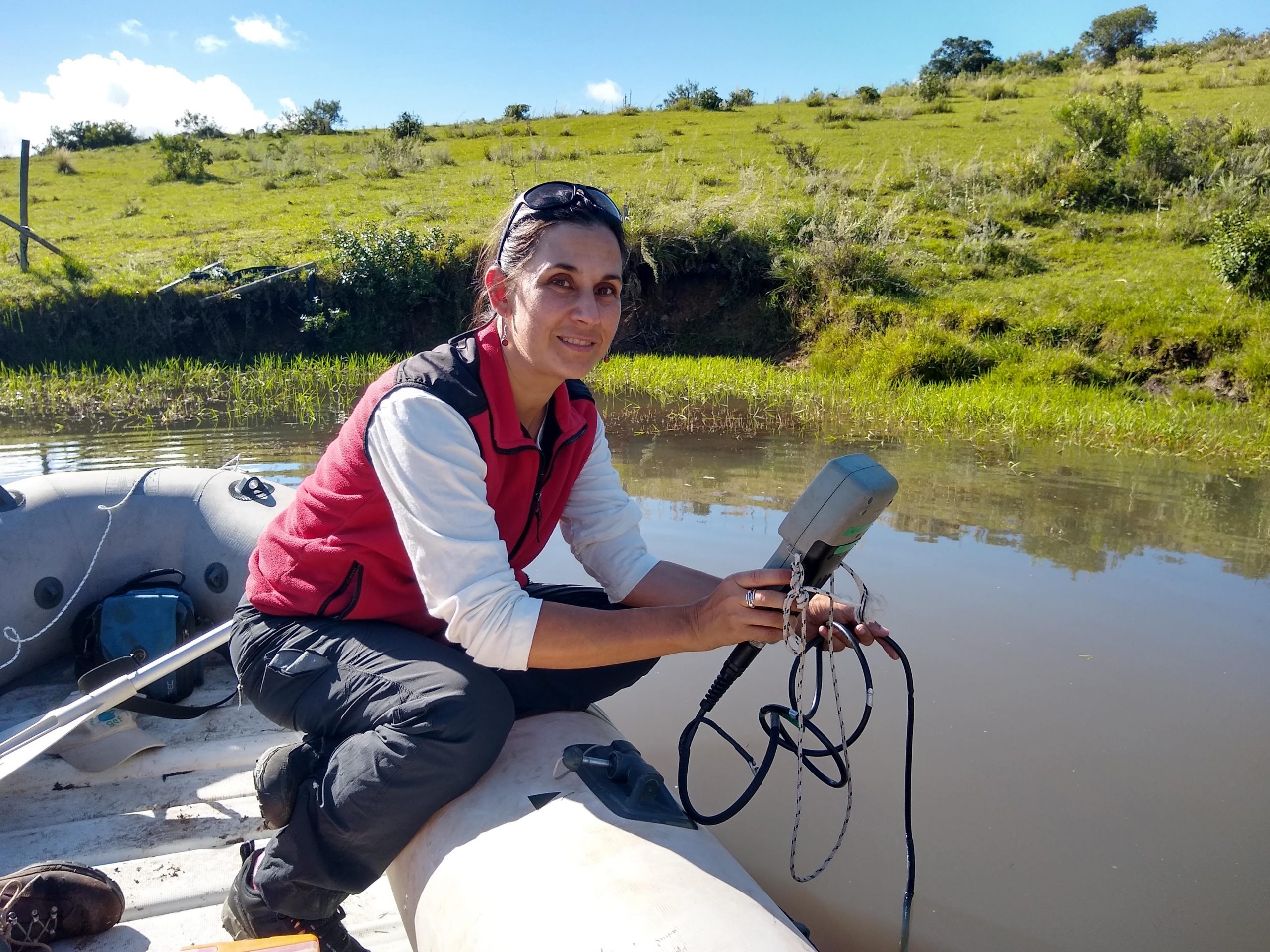I’m a limnologist: a freshwater ecologist interested in understanding the functioning of ecosystems and their responses to human activities. Ultimately, I aim to help find better ways to protect nature and to highlight the value of nature for us and for itself.
After achieving a Bachelor in Biology in the Universidad de la Republica (Udelar) in Uruguay, I pursued a Masters of Ecology between Udelar and the University of Liverpool in the UK. Under the supervision of the late Professor Brian Moss, I was introduced to the study of shallow lakes ecology. This opened the door to my PhD studies in Aaruhus University, Denmark, where I was fortunate to join the very active ‘Lake Group’ led by Erik Jeppesen. I remain connected to Denmark as an Associate Researcher and the broad international network of collaboration, which started in that period continues today.

Over time, I have moved from studying purely aquatic phenomena to analysing watershed processes, and from focusing in natural ecosystems to social-ecological systems. I now mostly work on the impacts of global change in aquatic ecosystems, from streams to reservoirs, from shallow lakes to artificial ponds. As a scientist, I am particularly interested in the mechanisms that provide resilience to complex systems against stressors and perturbations. As an environmentally concerned citizen, I am also very interested in contributing to policy making and stakeholder involvement.
I lead most of the Uruguayan contributions to PONDERFUL. This involves coordinating a highly motivated, fantastic team of young researchers, who are carrying out their undergraduate theses, masters, PhDs and postdoctoral projects. The team focuses on different aspects of ponds, from GHG fluxes, nutrient dynamics, biodiversity patterns, trophic web structure and ecosystem stability to stakeholder perceptions and involvement.
The PONDERFUL team in Uruguay is focusing exclusively on artificial ponds, most of which have been constructed to support livestock and crop production. The creation of these waterbodies has skyrocketed over the last 20 years following the intensification of agricultural production. Despite their high numbers, we lack knowledge on the ponds’ functioning and their negative or positive contributions to people.
Through PONDERFUL, we’re aiming to increase knowledge to enable better management of these artificial ecosystems. This could increase their value for biodiversity and reduce their negative impacts, due to eutrophication, cyanobacterial blooms, and the introduction of exotic species.
PONDERFUL is a great network of diverse international researchers who share a common ultimate interest: protecting both nature and human wellbeing. Thanks to the combination of ecologists, social scientists, academics and members of the private sector, I hope and expect that the project will increase our fundamental knowledge of ponds and contribute to better management practices and policies.
Many of the PONDERFUL team are long-time collaborators and friends, which makes this challenging endeavor a thoroughly enjoyable experience. Together, we are highlighting how small aquatic ecosystems are crucial for biodiversity and other key processes relevant both for nature itself and for human societies.

